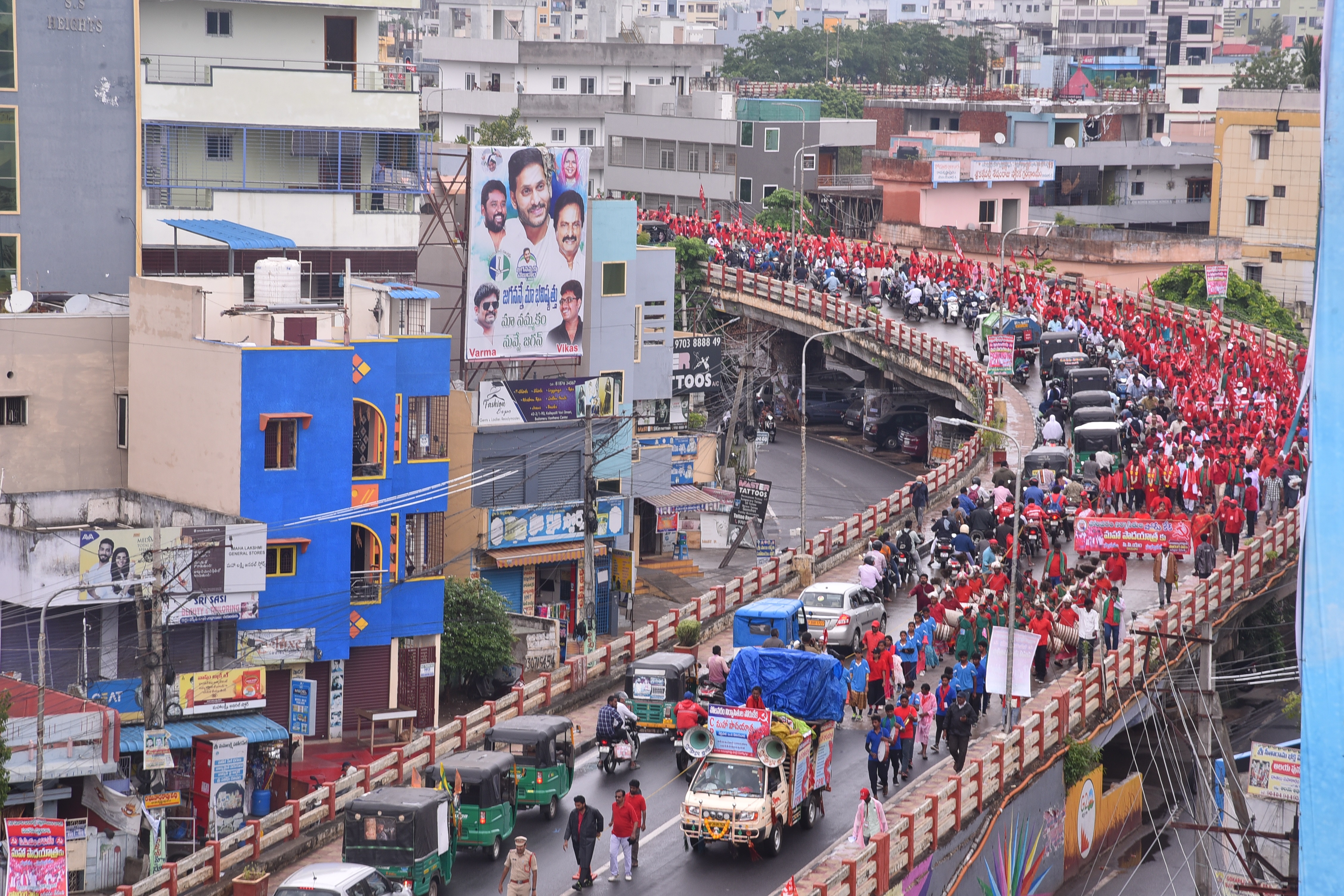
B Tulasidas
POLAVARAM Poru Keka, the foot march organised by the CPI(M) Andhra Pradesh committee to demand a resolution for the issues faced by the displaced people of the Polavaram project, commenced on June 20th and concluded on July 4th with a maha dharna held in Vijayawada. During the maha dharna, it was decided that the struggle would be further intensified if both the state and central governments fail to address and resolve the problems and concerns of the displaced people. The concluding march, which began at Singh Nagar, traversed through the streets of Vijayawada, receiving a warm welcome from the people who showered flowers upon the marchers and expressed solidarity through slogans.
Speaking on this occasion, BV Raghavulu, CPI(M) Polit Bureau member emphasized that the project oustees incur huge losses for the benefit of others. Therefore, it becomes the responsibility of both the governments and society to redress their grievances. He sternly warned the ruling authorities to promptly tackle the issues faced by the displaced people; otherwise, their discontent could lead to the overthrow of the governments. Raghavulu highlighted the remarkable legacy of the adivasis of Andhra Pradesh, the heroic struggle of Alluri Sita Rama Raju against the British in the 1920s. He extended his congratulations to the entire team, particularly the resolute women who participated in the march. Raghavulu elaborated on the long-standing neglect of the displaced people by successive governments over the past 15-20 years. He emphasized the difficulties faced by the displaced people, especially during the devastating Godavari floods of the previous year. Raghavulu demanded immediate precautionary measures and preparedness from the government this year, as the threat of flooding remains significant. He warned the government that the flood-affected tribals would not retreat to the hills but rather march towards the state capital.
V. Srinivasa Rao, the CPI(M) state secretary and leader of the foot march, provided an account of the distress faced by the displaced people they encountered. Despite the fact that many people still reside in the submergence areas, there has been a lack of welfare and developmental activities in those regions. The conditions in the rehabilitation colonies are even more deplorable, with a lack of basic amenities such as drinking water, street lighting, and designated burial grounds. Additionally, the displaced people have been denied opportunities to work under the Mahatma Gandhi National Rural Employment Guarantee Act (MGNREGA), further exacerbating their difficulties. Access to healthcare, education, and other essential services remains limited for them as well. Srinivasa Rao demanded that every rupee allocated to the project should prioritise the relief and rehabilitation of the affected people, rather than being channeled towards the construction contractors. He posed a question to the chief minister, asking whether he stands with the displaced people or favours the interests of the contractors. Vadde Sobhanadreeswara Rao, a former minister and kisan leader, commended the foot march team and expressed solidarity with the project-affected individuals on behalf of the people of Andhra Pradesh.
K Ramakrishna, the CPI state secretary, highlighted the failures of the state government and emphasized the need for the struggle to persist. Leaders of various Left parties in the state also addressed the gathering, expressing their solidarity with the cause.
The foot march continued for 15 days, encompassing a distance of over 400 kilometres across the submergence mandals. Approximately 500 people took part in the march, with 110 of them being young women. Modiyam Nagamani, CPI(M) Eluru district secretariat member and leader of the women's wing, shared accounts of the enthusiastic involvement of young women who took part overcoming various challenges. Boppena Kiran, CPI(M) ASR Rampachodavaram district secretary, voiced the anger and frustration felt by the adivasis.


